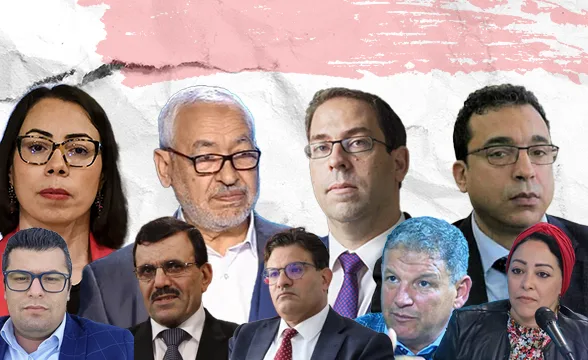Tunis, May 27, 2025 – The Criminal Chamber specializing in terrorism cases at the Tunis Court of First Instance decided on Tuesday to postpone the trial of the case known as “Conspiracy Against State Security 2” until June 24, 2025, rejecting all formal requests submitted by the defendants’ lawyers.
The rejected requests included a request to release several detainees, including Mehrez Zouari (former Director General of the Specialized Services at the Ministry of Interior), Kamel Bedoui, and Abdelkarim Laabidi, in addition to a request to transfer the case to the military judiciary, given the defendants’ security background and the background of the incidents attributed to them.
All of these requests were rejected following a brief pleading session, without detailed judicial justification being presented in the public hearing, indicating a lack of procedural transparency.
Terrorism Judiciary Transformed into A Cover for Settling Political Scores:
The Freedom for Tunisia Observatory believes that the course of the case once again reflects the unfortunate political nature of this case, especially in light of the absence of substantial evidence made public, and the reliance of prosecutions on anonymous reports and vague descriptions of the charges, such as “conspiracy” and “threatening state security.”
Although the Observatory does not support, in principle, the referral of civilians or defendants to military courts, it believes that the court’s refusal to even consider a request to relinquish the case to a competent court based on the defendants’ previous status is an additional indicator of the restricted judicial process and the lack of transparency.
The Observatory also notes a clear obstruction of the right to defense, through the refusal to release detainees without adequate justification, and the repeated postponements that prolong pretrial detention without genuine legal justification, which violates the basic principles of a fair trial.
The Tunisian Freedom Observatory calls for:
- Publishing the details of the case and enabling the public to know the true facts and the evidence used.
- Transferring the case to the competent ordinary court, if the facts do not meet the criteria for a terrorist crime, as defined by the law.
- Release detainees in the absence of serious evidence of a risk of flight or recidivism,
- Stop expanding the jurisdiction of the Judicial Counter-Terrorism Pole to include controversial cases of a political or administrative nature.
The Observatory emphasizes that the continued prosecution of former civilian or security figures in cases based on vague testimonies without clear evidence reflects a climate of judicial liquidation and threatens the foundations of justice in Tunisia.





